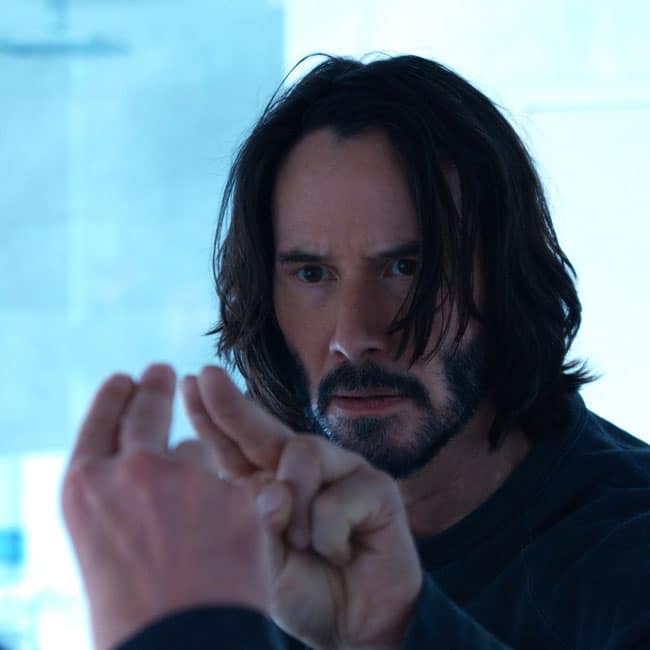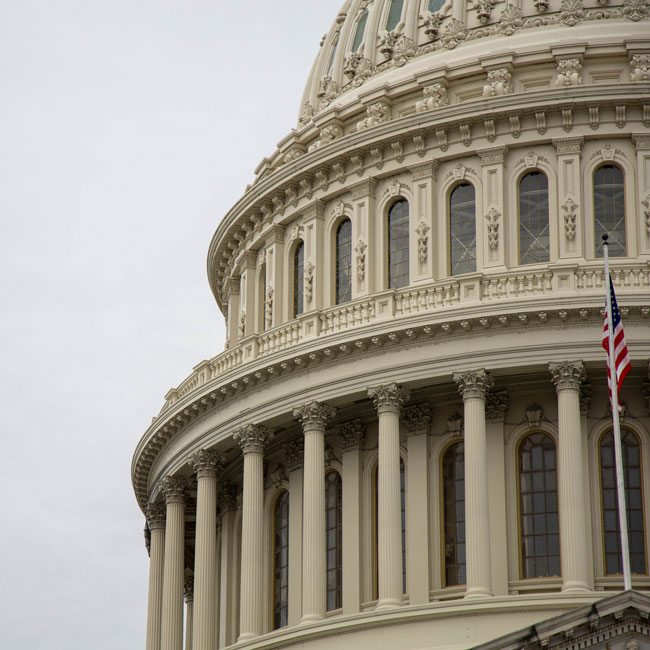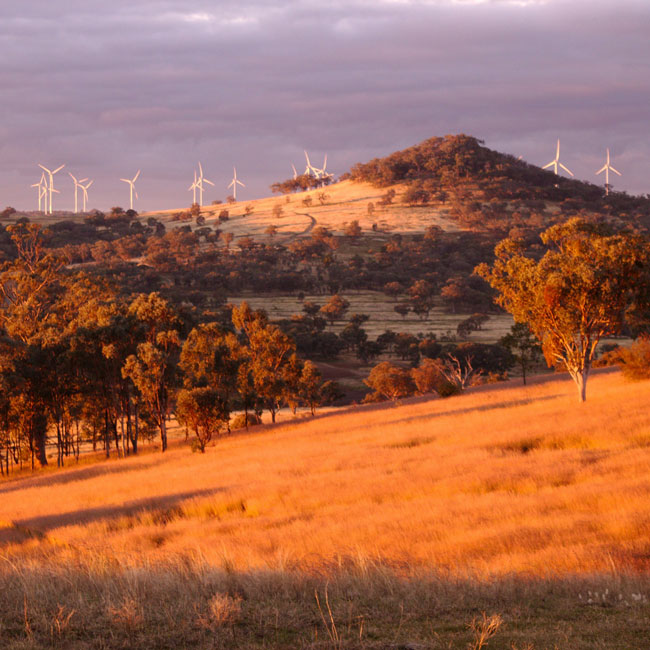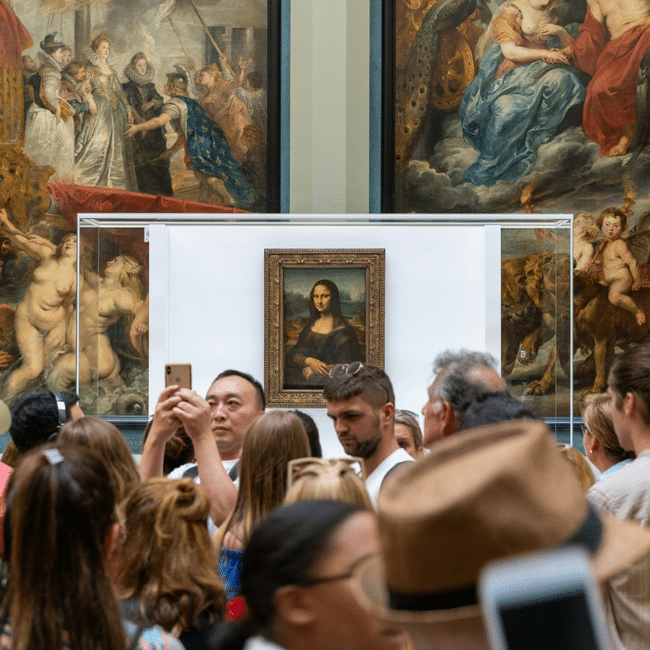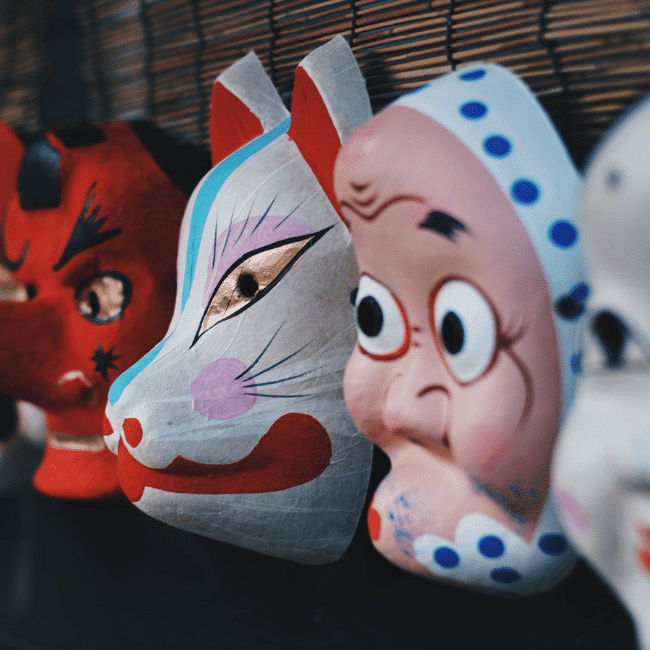Strange bodies and the other: The horror of difference

Strange bodies and the other: The horror of difference
Opinion + AnalysisSociety + Culture
BY Joseph Earp 21 MAY 2024
Love Lies Bleeding, the new film by director Rose Glass, is a simple girl-meets-girl noir story. At least, for about half of its running time.
Set in a nowhere town populated by gun nuts and ne’er-do-wells, it opens with a chance encounter between Lou (Kristen Stewart) and Jackie (Katy O’Brian). The former’s trapped in this dump because she needs to protect her sister, and the latter has sailed in to try and pursue her dreams of becoming a bodybuilding superstar. They shoot each other up with steroids, make food for each other, and fall in love.
They are, from the outset, different. They don’t fit into this place, with its villains and deadbeats. Not just because they are queer – but because they want for more, and desire something bigger than the diners and gun ranges on offer.
Which is the impetus for Love Lies Bleeding’s sudden, mid-film shift. The more Lou and Jackie fall out of step with the town, the more they begin to literally change. Jackie, always strong, starts to become superhumanly so. Her body expands outrageously, until, before the audience has really noticed what is going on, she is a giant, dwarfing the town and its denizens.

In this way, Love Lives Bleeding owes more to the cinematic genre of body horror than it does to the noir trappings it initially flirts with. And more than that, it investigates one of body horror’s key themes – the way that difference can manifest not just in our minds, but on our skin.
The mind and the body, the body and the mind
Body horror as a genre is a continuation of the work of philosopher Baruch Spinoza. For Spinoza, the body and the mind are the same thing – the one substance. They are “numerically identical”, as in, there is no separation whatsoever between them. When you point to the mind, you are also pointing to the body. Indeed, Spinoza was a monist – as in, he believed that all things were made from one singular “entity.” Spinoza called this entity nature; some have called it God.
Importantly, this monism means that for Spinoza, our emotions, thoughts, and desires are inherently embodied. On Spinoza’s view, we are not just a brain, controlling a fleshy automaton of a body. We are in our own skin. Or, more precisely, we are our own skin. Anything that we think or want expresses itself physically, because our brain is inherently physical.
This view tells us interesting things about both body horror cinema, and about otherness. Namely, that if we are ‘other’ – if we step outside the mainstream of sexuality, gender, or ability – then that otherness will manifest ourselves in our body. There is no hiding our difference on this view; no successful way to “pass”, as though we are part of the established norm. Anything that we think and feel will make us physically different, and therefore will be able to be read by others. We will always be a square peg in a round hole, and everybody will always know it.
Love Lies Bleeding takes the most extreme version of this perspective – Jackie’s gigantism is a physical manifestation of her difference that means she can’t fit through doorways, let alone pass as one of the town’s regular citizens. She is other, which means she doesn’t just occupy mental states that run against the mainstream. Her difference changes how she carries herself in the world – and how she is perceived.

The othered body and its power
Body horror films do more than merely diagnose the physical manifestations of otherness, however. They also pass a sort of moral judgment on it. Many entries into the genre don’t see this otherness as something to be avoided, or stripped away. Indeed, they see it as something to be embraced – a source of considerable power.
Take, for instance, Carrie, directed by Brian DePalma, in which a young alienated woman discovers that she has telekinetic powers. Carrie is the subject of relentless bullying – in the opening scene, we see her body shamed for its difference, as she has a period in the communal shower, much to the cruel glee of her schoolmates.
But when she discovers that which makes her different is the same thing which makes her special, she becomes significantly stronger. The film’s bloodbath of an ending, in which Carrie decimates those who have humiliated her, is a strange sort of coronation – Carrie is literally wearing a crown while she murders a roomful of her enemies. She’s stopped trying to fit in. Instead, she has thoroughly, wholeheartedly embraced her otherness.

This is point of view is also backed up in the literature about Spinoza. As many Spinoza scholars have noted, understanding is the key to Spinoza’s project – he believed in the ethical value of the accumulation of knowledge – and because of his monism, this understanding is one centred in the body. “For Spinoza the critical task is to formulate an ethics of knowing, which begins with an understanding that body and mind are two attributes of the same substance,” write Paul Stenner and Steven D. Brown. “Increasing the capacity of the body to both be affected and affect others is the means by which the knowing subject progresses.”
In these body horror films, assimilation with the status quo is impossible – how could Carrie, with her telekinesis, ever be like others? How could Lou, the giant, ever pretend to be different? But more than that, however, assimilation is not even desirable. Instead, these films are a rallying cry to those who do not fit into boxes; to the outcasts. They say, “any changes will be noticeable on your skin, so you cannot hide them.” And they say, “any changes will be noticeable on your skin, so you should not hide them.”

Ethics in your inbox.
Get the latest inspiration, intelligence, events & more.
By signing up you agree to our privacy policy
You might be interested in…
Opinion + Analysis
Relationships, Society + Culture
Nothing But A Brain: The Philosophy Of The Matrix: Resurrections
Opinion + Analysis
Relationships, Society + Culture
Meet Joseph, our new Fellow exploring society through pop culture
Opinion + Analysis
Politics + Human Rights, Society + Culture
Why sometimes the right thing to do is nothing at all
Opinion + Analysis
Business + Leadership, Politics + Human Rights, Society + Culture
Drawing a line on corruption: Operation eclipse submission
BY Joseph Earp
Joseph Earp is a poet, journalist and philosophy student. He is currently undertaking his PhD at the University of Sydney, studying the work of David Hume.
The limits of ethical protest on university campuses

The limits of ethical protest on university campuses
Opinion + AnalysisPolitics + Human Rights
BY Tim Dean 14 MAY 2024
Ethical protest is a crucial element of liberal democracy. But protesters and universities must tread a fine line to allow good faith expression while preventing unethical forms of speech.
In parallel to the conflict raging in Gaza, another front has emerged in the form of pro-Palestine protest camps at universities across the United States and Australia.
The protesters have called for a ceasefire in Gaza and for their host universities to sever any connections with defence companies that support Israel’s war effort, including divestment of stock in any companies with ties to Israel. Meanwhile, Jewish lobbies have claimed that the protests are stoking antisemitism and compromising the safety of Jewish students.
In the US, these camps have triggered a significant, and occasionally violent, backlash from authorities. Both Columbia University and the University of California, Los Angeles have called in police and riot squads to break them up, leading to hundreds of arrests. Australian campuses have so far refrained from such a forceful response, but there are increasing calls from some voices, to close them down.
How should universities and other authorities respond to these protests? What kinds of protest are deemed acceptable? Which cross the line and should be shut down?
Ethical protest
Every citizen of a liberal democracy has the right to protest against injustice. But protesters and authorities must tread a fine line between allowing justified forms of expression while preventing forms that incite, dehumanise, vilify or cause undue disruption or damage to private or public property.
But what counts as incitement when slogans are interpreted in different ways by different people? What constitutes vilification, when many in the Jewish community perceive criticism of Israel as being antisemitic? Is it undue disruption if a camp prevents uninvolved students from attending their classes? Can a protest movement prevent fringe elements from coopting it to promote extreme views or violence?
These are difficult questions to answer for both protesters and universities. However, a better understanding of the limits of ethical protest can guide those running the camps to ensure they remain within the bounds of what is justifiable speech, and authorities, so they don’t end up suppressing legitimate forms of expression.
In good faith
A crucial feature of ethical protest is that protesters are acting in good faith, which means they are acting with the intention to call out what they genuinely believe to be an injustice.
This means the protesters need to have just cause, and ensure their expression doesn’t stray outside of this justification. In the case of the pro-Palestine camps, there are arguments that can provide just cause, including statements of concern from the United Nations, governments and other world leaders about the impact that the conflict is having on innocent civilians and the lasting damage to infrastructure that could harm future generations of Palestinians who played no part in Hamas’s terrorist attacks of October 2023.
However, there have been some pro-Palestine protesters who have stepped outside of bounds of this just cause, such as threatening Jewish students or saying Hamas deserves “unconditional support”.
A major challenge for the pro-Palestine camps is to keep emotions, especially outrage, in check. This is because justifiable outrage and heated emotion against injustice can easily tip over into calls for unjustified retribution against the perceived wrongdoers. While protesters may not intend to carry out any hyperbolic threats they express verbally, they can still service to threaten, intimidate and dehumanise. A sense of solidarity with one’s cause can also lead people to refrain from criticising problematic views or actors within their own “tribe” for fear of appearing disloyal.
Universities and other authorities are right to clamp down on any individuals who engage in such bad faith forms of expression. However, if protest leaders clearly demonstrate that they repudiate violence and dehumanising claims, and actively police their own ranks, then the universities ought to draw a distinction between the protest movement as a whole and individuals who overstep the line.
Interpretation
Bad faith expression is complicated by ambiguous slogans, such as “intifada” or “from the river to the sea”. Many people interpret the former as a call for resistance, while others associate it with the Palestinian uprisings starting in the 1980s. And some interpret the latter slogan as a call for peace within the region while others hear it as a call for the elimination of the Israeli state.
It is inevitable that symbols will be interpreted in different ways, and it is impossible to ensure that a symbol will only have one meaning. It’s also impossible to prevent fringe elements from appropriating a symbol and potentially tainting its meaning.
However, protest organisers can be clear about the intended meaning of symbols, promote good faith interpretations and suppress their use when they overstep into representing a clear threat to others. People perceiving the symbol should also exercise charity in their interpretation, rather than assuming the worst possible interpretation. Only in clear cases where the symbol is being used consistently in a bad faith manner should authorities step in to suppress its use.
Language matters
Language that is critical of the Israeli government has also been interpreted by some as being inherently antisemitic, and often such criticism has been laced with antisemitic sentiment. However, it is possible in principle to be critical of the Israeli government and its policies without being antisemitic. Were that not the case, then a significant proportion of the Jewish population of Israel would itself be deemed antisemitic due to its strong opposition to the current government’s policies. It is also possible to condemn terrorism and Hamas’ October 7 2023 attacks against civilians and also condemn the scale of collateral damage in Gaza as a result of the Israeli offensive.
It is important for those critical of the Israeli government to be clear in their use of language to not imply any antisemitic sentiment, just as it is important for those listening to exercise charity in how they interpret such statements.
Disruption
Many protests cause disruption. Indeed, disruption is sometimes a means to draw attention to an issue that might be otherwise overlooked by the public. However, ethical protest requires that the organisers minimise their impact on bystanders, especially those who are not responsible for the injustice being protested.
If the disruption becomes disproportionate, or it tips over into serious property damage, then authorities can be justified in placing restrictions on the protest and prosecuting any individuals who are involved in damaging acts. However, authorities must be very careful in how they do so, as targeting the entire protest can end up suppressing legitimate speech and can also backfire, causing more disruption or damage.
More space for protest, not less
Often the most prudent response to a protest is for universities to give the protesters more space for expression, not less. Despite the demands issued by many protesters, one core goal is often simply to be heard and acknowledged. Even if the other demands, such as divestment, are not met, protesters may still feel satisfied if they are given the space and respect to be seen and heard.
If universities give the protesters a platform to express their good faith arguments – and equal space for others to oppose them in good faith – and they can manage it safely, then it can take a great deal of pressure off the protest movement, which might otherwise lash out in more destructive ways.
It is also crucial that the protests do not turn violent. One trigger for such violence is overly forceful policing, as we have seen in the United States. By increasing the pressure on protesters, especially if that pressure is exerted by police, who are trained to use force when necessary to achieve their objectives, then protesters can lash out or act in self-defence. This can, in turn, motivate an even more forceful crackdown, leading to a spiral that can end in violence or riots. Better to take the pressure off and give the protesters the space to act peacefully and in good faith rather than set their backs against the wall.
It is impossible to guarantee that any protest will unfold entirely without cost or error. But as long as the protesters are acting in good faith, with just cause, and if they police their own members to prevent unethical behaviour, then universities ought to give the protesters the space to do so peacefully and with minimal impact.

Ethics in your inbox.
Get the latest inspiration, intelligence, events & more.
By signing up you agree to our privacy policy
You might be interested in…
Opinion + Analysis
Politics + Human Rights, Relationships, Society + Culture
You won’t be able to tell whether Depp or Heard are lying by watching their faces
Opinion + Analysis
Society + Culture, Politics + Human Rights
What it means to love your country
Opinion + Analysis
Business + Leadership, Politics + Human Rights
Housing affordability crisis: The elephant in the room stomping young Australians
Opinion + Analysis
Society + Culture, Climate + Environment, Politics + Human Rights
Why you should change your habits for animals this year
BY Tim Dean
Dr Tim Dean is a public philosopher, speaker and writer. He is Philosopher in Residence and Manos Chair in Ethics at The Ethics Centre.
Australia’s fiscal debt will cost Gen Z's future

Australia’s fiscal debt will cost Gen Z’s future
Opinion + AnalysisBusiness + LeadershipPolitics + Human Rights
BY Enoch Strickland 10 MAY 2024
When my HECS debt exceeded $50,000, my jaw dropped, and I wondered how I’d ever pay it off. In contrast, my father enjoyed a free tertiary education when he was my age and entered the workforce unburdened by debt. Is that fair?
The Baby Boomer generation faced huge challenges, like post-war reconstruction, promoting civil rights and living with the prospect of nuclear war. But it had its boons too. This is the generation that benefited from a buoyant labour market, cheap housing and enjoyed free university thanks to the Whitlam Government. Today, a booming housing market is helping to fund a luxurious retirement for many of that generation.
On top of this, middle-aged and older Australians have disproportionately benefited from government spending in recent years – spending that has been funded by taking on debt that younger generations will have to pay off. So not only do younger generations not have the benefits that older Australians have enjoyed, but they have the added burden of government debt.
It’d be like if I was able to avoid paying my HECS debt for my university degree by foisting that debt on my children. I would benefit from the education and its employment opportunities, but my children would bear the cost. Just as that would be unfair, so too are Boomers passing government debt onto younger generations while they get to enjoy the benefits of government spending today.
This is the problem of intergenerational injustice when it comes to government debt. Fiscal spending is, by nature, short-term and aims to solve economic problems quickly. In moderation, it isn’t bad. However, in excess it disproportionately benefits people who are working at the time. Younger and future generations then bear the brunt of debt repayments accumulated by previous governments, while receiving fewer immediate benefits from the public spending financed by that debt. In contrast, older individuals enjoy the immediate advantages of government expenditure without the long-term responsibility of repaying the accumulating fiscal debt.
For example, the large government spending during the COVID-19 pandemic has left Australia with a debt in excess of $800 billion. That is around 38% of Australia’s GDP. This means for the next 20-30 years, when today’s young Australians will be entering the workforce, their taxpayer dollars will not go into benefiting the society they live in, but rather repaying these loans. If the government cannot repay those loans, it must either increase taxes or spend less. It means young people potentially could lose healthcare benefits or have less personal money due to increased taxation or cuts in services.
Philosopher Juliana Uhuru Bidadanure argues that we should be focused on relational equality at a moment in time. Relational equality emphasises the significance of social relationships and interdependence in achieving a more equitable society, highlighting the need to address and transform the structural conditions that perpetuate inequality.
Younger people today should not have to financially suffer today because it is expected that their lives will improve later.
Likewise older people in nursing homes shouldn’t be punished because they had a good life earlier. Everyone, regardless of age, should be entitled to a good life. Debt ultimately undermines this principle of relational equality if the benefits are only short term, as an unfair burden is placed unto future generations.
Jobseeker is another example contributing to this inequality. Members of Generation Z who weren’t working or on Youth Allowance during the pandemic received no government benefits, much of which were funded by debt. So, over the next two decades, it will fall mainly on Generation Z to repay that debt, even though they received the least benefit from it. In fact, someone born today will likely have to pay off a portion of that debt in their first job even though they were not alive to experience the COVID-19 stimulus. Older generations will not live long enough to see through the long-term consequences of debt, but young people today will.
It is important to note that not all debt is bad, such as long-term spending as investments today can greatly benefit future generations. Unlike pandemic-related debt, which disproportionately benefited older people, expenditure on infrastructure contributes to the collective good and is eventually enjoyed by younger people when projects are completed, demonstrating a more equitable form of financial responsibility.
In addressing the pervasive issue of intergenerational injustice fuelled by fiscal government debt, we must advocate for policies that prioritise relational equality now. Balancing the scales requires a nuanced approach, moderating short-term fiscal spending, focusing on the impact of spending in the long-term through investments in projects like infrastructure.
Governments need to ensure that they are careful with how their spending today will impact future generations. Short-term spending promises before an election are an example of short-term thinking from our political establishment. Naturally, voters who benefit from such spending might be inclined to support such policies. But they should be mindful of not only their self-interest but the interests of future generations, including their children and grandchildren.
Meanwhile, Generation Z would benefit from advocating for balanced government budgets, for it is in their interests. Young people should always be cautious whenever they hear the words “fiscal”, “stimulus” and “injection” into an economy. Because, in the future, if those government actions risk a debt blowout, they are the ones that will have to pay for that intervention in the future.

Ethics in your inbox.
Get the latest inspiration, intelligence, events & more.
By signing up you agree to our privacy policy
You might be interested in…
Opinion + Analysis
Business + Leadership, Politics + Human Rights
Vaccination guidelines for businesses
Opinion + Analysis
Business + Leadership, Politics + Human Rights
No justice, no peace in healing Trump’s America
Opinion + Analysis
Politics + Human Rights, Health + Wellbeing, Society + Culture
I changed my mind about prisons
Opinion + Analysis
Politics + Human Rights, Relationships
Ask an ethicist: do teachers have the right to object to returning to school?
BY Enoch Strickland
Enoch is currently studying a Bachelor of International Security Studies and Politics, Philosophy and Economics at ANU in Canberra, but was born in Alice Springs, NT. He grew up and graduated there and has a strong passion to help those most vulnerable in Australian society. His hometown is currently experiencing a crime wave, (Kmart and Target are rumoured to be closing down – removing cheap clothes options in Central Australia) and a health crisis. He wants to bring further insight from his own experiences to help further understand how we can bring services to remote communities and why governments are responsible for this.
Productivity isn’t working, so why not try being more ethical?

Productivity isn’t working, so why not try being more ethical?
Opinion + AnalysisBusiness + Leadership
BY Ross Gittins 6 MAY 2024
Economists and business councils have been telling us for years that we must improve our productivity if we want to be more prosperous but, so far, they’ve had little success. Surely, there’s something else we could try?
As we’ll see, it’s something for Treasurer Jim Chalmers to ponder as he puts the finishing touches to next Tuesday’s budget.
Economists have many strengths, but they don’t win many prizes for thinking outside the box. Productivity is the obvious way to increase our prosperity but, despite all the admonition, for years it’s been hard to achieve, both here and in the other rich economies. It’s clear there’s a lot economists don’t know about how productivity is improved.
So, is there nothing else we could do to improve the way the economy works and the satisfaction it brings us? Of course there is – particularly when you remember this isn’t just about dollars and cents. Don’t you think life would be better if we could do all our earning and spending in an economy that generated less angst?
I’m indebted to Dr Simon Longstaff of the Ethics Centre for reminding me that behaving more ethically would be a good way to get better results from the economy.
Huh? How does that work? Let me tell you.
Ethics is a set of beliefs about the right way for people and organisations to behave, particularly in their relations with other people. Often, the right thing for us to do in particular circumstances is obvious.
It’s obvious, for example, that we should (almost) always obey the law. It’s just that obeying the law isn’t always convenient or inexpensive. And sometimes when our own interests are top of mind, it’s hard to see what’s obvious to everyone else.
In any case, because differing groups of people have differing beliefs and motives and objectives, ethical dilemmas – deciding what’s the right thing to do in all the circumstances – are common, particularly in business. That’s why we have a new profession of ethicists offering advice to organisations, of which Longstaff is the most prominent.
But what’s that got to do with the economy?
Well, let’s be clear. The only reason we should need to do the right thing is that it’s the right thing to do. And the only reward we should expect is being able to sleep well at night in the knowledge that we’re treating people justly, often at some cost to ourselves.
However, as Deloitte Access Economics has demonstrated in a report for the Ethics Centre, there is a strong “business case” for behaving ethically. A case that makes sense not just for individuals and businesses, but also for the treasurers and Treasuries responsible for improving the way the economy’s working.
The case rests on an obvious, but often forgotten truth: market economies rely on a high degree of trust.
Trust between buyers and sellers. Trust that you’re not selling me a dud. Trust that your cheque won’t bounce.
Trust that you’ll let me return it if there’s a problem. Trust that you’ll honour your promise to service the thing for the next X years. Trust that you won’t pinch someone else’s bag from the airport carousel. Trust that you’ll repay the money I lent you.
Trust that if I let you check yourself out at my supermarket, you won’t slip in a few things you didn’t ring up. Trust that if I work for you, you’ll treat me fairly. Trust that the law will back me up if you do the wrong thing.
Point is, the more confident we are that we can trust each other – trust the businesses we deal with – the more smoothly and cheaply the economy runs and the more business gets done. When we have to spend a lot of money on security and making sure we’re not ripped off, the costs mount up, and we end up not doing all the transactions we could.
So, how do we get more trust into the economy? How do workers, employers and businesses get themselves a good reputation? By always behaving ethically. (I could say this also applies to politicians, but that would be pushing it.)
Research by Access Economics finds evidence that fewer unethical decisions lead to better mental and physical health for individuals. And evidence that unethical behaviour leads to poorer financial outcomes for business. And evidence that ethical behaviour results in higher wages.
But Access also reminds us of the evidence that our ethical standards could be a lot higher than they are. The World Values Survey finds that only a bit over half of Australians think most people can be trusted. The Governance Institute finds that, on a scale running from minus 100 to plus 100, Australia ranks at plus 45, or “somewhat ethical”.
Then there’s the string of royal commissions finding unethical or even illegal behaviour in institutional responses to child abuse, misconduct in the banking industry, and aged care. And that’s before we get to the epidemic of “wage theft” that so many otherwise respectable big businesses have had to admit to – all of it purely accidental, apparently.
OK, OK, we could do a lot better, with that producing tangible economic benefits. But how? Well, one approach would be for economists and econocrats to switch their sermonising from productivity to ethical behaviour.
Perhaps not. What would help is for ethical questions to get a lot more of our attention. As sociologists understand, but most economists don’t, businesses – like the rest of us – tend to want to do what others are doing. If we’re all being ethical, I don’t want to be seen as uninterested in ethical behaviour.
If we could give ethics a higher profile, we’d probably get more of it.
If expert advice on ethical problems was more readily available, more would be asked for. If there were more training and meetings and conferences on the topic, more decisions would be examined for their ethical implications.
Longstaff’s Ethics Centre has a proposal to improve our “ethical infrastructure” by teaming up with the universities of Sydney and NSW to establish an Australian Institute of Applied Ethics, which would be open to receiving requests from governments and the private sector to report on major ethical questions facing the nation. It would be a bit like the Productivity Commission or the Australian Law Reform Commission, but it would not be a government body.
It would also contribute to education, training and leadership development, building the practical skills of good decision-making on ethical issues in the private and public sectors.
Copying the pattern used to establish the hugely successful Melbourne-based Grattan Institute, the proposal is for the federal government to contribute $30 million towards a $40 million one-off endowment. The new institute would be funded from the earnings on this endowment, plus earnings from providing education, training and other services.
We’ll learn on budget night whether Chalmers and his boss are acting on this sensible idea for achieving a better economy, or whether they will be content with more platitudes on the need for greater productivity.
This article was originally published in The Sydney Morning Herald.
Ethics in your inbox.
Get the latest inspiration, intelligence, events & more.
By signing up you agree to our privacy policy
You might be interested in…
Opinion + Analysis
Business + Leadership, Health + Wellbeing
David Pocock’s rugby prowess and social activism is born of virtue
Opinion + Analysis
Business + Leadership
Accountability the missing piece in Business Roundtable statement
Opinion + Analysis
Climate + Environment, Business + Leadership
We’re in this together: The ethics of cooperation in climate action and rural industry
Opinion + Analysis
Business + Leadership
Do Australian corporations have the courage to rebuild public trust?
What we owe each other: Intergenerational and intertemporal justice

What we owe each other: Intergenerational and intertemporal justice
Opinion + AnalysisPolitics + Human RightsClimate + Environment
BY Pia Curran 3 MAY 2024
According to the United Nations, the global population will increase by two billion over the next thirty years. This gives the idea of intergenerational justice particular weight. But philosophers struggle to discern the existence, nature and extent of any moral duty owed to future generations.
Issues of remoteness, non-identity, and economics leave many fixed in the parochialism of the present. Using British philosopher, Derek Parfit’s ‘person-affecting principle’ and the threshold notion of harm to argue that current generations do owe a moral duty to their heirs, existential threats to present and future people, such as climate change, should be dealt with through a pragmatic, sociological focus on distributive justice, encouraging a reinterpretation of justice as inter-temporal.
Relations between generations are ‘relations of domination’. Future people either have not come into existence, or they are too young to access the full rights of a democratic citizen. For some, this belies a ‘moral imperative to give voice to the voiceless’. Others resist giving ethical considerations to non-specific, non-existent things, and the future consequences of our actions are not certain. Indeed, future generations have not done anything to warrant our consideration, so obligations must come from some intrinsic value placed on human life.
Israeli political scientist, Avner de-Shalit suggests the existence of a ‘transgenerational community’ to which we owe a duty because we share ‘cultural interaction and moral similarity’. But deciphering how far into time this community stretches is difficult, and de-Shalit does not adequately address the different levels of obligation felt towards today’s youth and remote future people, with whom it is difficult to feel part of a community.
A more convincing argument is Derek Parfit’s ‘person-affecting principle,’ the ‘fundamental ethical requirement that humans have an obligation not to affirmatively harm a person.’
If everyone should be treated with respect and dignity no matter when they are born, we ought not to make decisions that will cause harm to future persons.
This deontological position is strengthened when considering an adaptation of Australian philosopher Peter Singer’s classic thought experiment. If it is equally important for an adult in Nepal who sees a drowning child to save the child as it is for you to save a drowning child in front of you, then spatial distance must be irrelevant to moral responsibility to prevent harm. By extension, why should temporal distance be any different? Tensions surrounding the personhood of the unborn should not keep present people from refraining from acts that will harm the interests of future people, whether or not they actually come into existence.
But Parfit does not define the meaning of ‘harm’, nor what level of care is owed to future generations. If a policy is criticised because it is predicted to worsen future standards of living, it could be said that all actions have some consequence for the lives of future people. If the act results in certain people not coming into existence, they cannot really be said to have been ‘harmed’ by the policy, because they never became a person.
Defining ‘harm’ through the notion of the threshold abates this problem. It does not require individuals to be worse off at a point in time than they otherwise would had a harmful act not been performed, only that they are worse off than they ought to be. Individuals are harmed if they come into existence in a sub-threshold state. This extends the notion of moral responsibility and intrinsic rights across time so that, ‘no child should do worse than some minimum standard that is determined by reference to the entire society,’ taking basic requirements such as food, water and shelter as a given.
Determining this threshold, however, is difficult. Buchanan suggests ‘better than our current median’ as an antidote to ‘better than me,’ because this acknowledges intragenerational disadvantage. The economic practice of ‘discounting’ the future, by contrast, entails a willingness to act on a preference for current generations. This discount rate ‘dramatically diminishes the significance of policy effects on future generations.’
The issue then becomes one of balance. How do we balance our obligations not to inflict harm on ourselves, and the sometimes competing aim to not inflict harm on future individuals? Focusing on fiscal policy, Buchanan suggests a focus on ‘distributive justice,’ pressing the need to weigh all claims and redistribute resources away from the ‘richest’ to the ‘poorest,’ irrespective of when those people may be alive. For example, higher taxation for the rich and more investment in welfare and public infrastructure of the future. The aim is to reach a level of wellbeing ‘according to which both currently and future living people are able to reach a sufficientarian threshold.’
Issues posing existential threats to present and future people have a particular moral primary in terms of harms to avoid. Climate change, especially rising global temperatures, poses irreversible and universal damage. Using the threshold concept of harm, one assumes that future generations ought to live in a clean and safe environment, and current generations ought to act in ways that avoid environmental degradation. But, given that sustainable energy is more expensive than fossil fuels, there exists a tension between economic growth and ecological protection.
Irish sociology lecturer, Tracey Skillington takes a sociological rather than philosophical approach, arguing that ‘the needs of the capitalist present have taken precedence over all other concerns,’ noting the insufficient efforts taken to prevent environmental harm. If all focus is on present concerns, justice is not equitably distributed to the future. Skillington sees this as a flaw in the present liberal-democratic political infrastructure.
Youth are taking legal action against governments to assert their right to inherit a safe environment. In Australia, a temporarily-established common law duty of care to protect young people from climate change was reversed by the Full Bench of the Federal Court. It held that the previous judge’s reasoning was too expansive and endorsed an analysis based only on narrow legal principles of negligence. This view does not consider that intergenerational issues arise slowly, and legal justice should be interpreted in a manner that extends beyond the political and economic realities of the present if we are to prevent harm to future generations.
Scottish philosopher, William MacAskill’s ‘longtermism’ encourages a broader gaze, asking politicians to see beyond the short term reality of a carbon economy to universal and inalienable collective rights. This ‘intertemporal’ approach to justice and the role of institutions recognises humanity as bound not only by biology, but ‘shared ecological resources and a common cosmopolitan project as well’. Through national and international cooperation, current generations can minimise harm by creating a threshold state that satisfies the right to a safe environment and equitably distributes justice between present economics and future longevity.
The notion that future generations can suffer harm at the hands of present policies creates a moral obligation to avoid acts that ensue a sub-threshold state. This state is determined by reference to the society as a whole, but as a minimum can be expected to include basic necessities such as a clean environment. Democratic institutions should adjust their gaze when formulating policy, recognising long-term implications and understanding justice as a concept that exists across and between time.
‘What we owe each other: Intergenerational and intertemporal justice‘ by Pia Curran is one of the Highly Commended essays in our Young Writers’ Competition. Find out more about the competition here.

Ethics in your inbox.
Get the latest inspiration, intelligence, events & more.
By signing up you agree to our privacy policy
You might be interested in…
Opinion + Analysis
Business + Leadership, Climate + Environment
The business who cried ‘woke’: The ethics of corporate moral grandstanding
Opinion + Analysis
Politics + Human Rights, Relationships
Whose home, and who’s home?
Opinion + Analysis
Business + Leadership, Politics + Human Rights
Australia’s fiscal debt will cost Gen Z’s future
Opinion + Analysis
Politics + Human Rights, Relationships
We’re being too hard on hypocrites and it’s causing us to lose out
BY Pia Curran
Pia studies Arts and Advanced Studies at the University of Sydney, majoring in English and History. She is passionate about the value of humanities and philosophy and their pertinence to public policy. In her spare time she enjoys reading and creative writing and hopes to one day publish her own collection of essays or short stories.
Why are people stalking the real life humans behind ‘Baby Reindeer’?

Why are people stalking the real life humans behind ‘Baby Reindeer’?
Opinion + AnalysisSociety + Culture
BY Joseph Earp 30 APR 2024
Baby Reindeer, the new Netflix miniseries based on a true story, opens with a simple act of kindness — Donny Dunn (Richard Gadd), a wannabe stand-up comedian, gives a customer a free cup of tea.
“I felt sorry for her,” Donny tells us in voiceover, as Martha (Jessica Gunning) wanders into the pub where he works. It is an action he will soon regret.
The two begin conversing; as they do, Martha becomes increasingly obsessed with the comedian. Simple affection morphs into something obsessive and painful – Martha begins bombarding Donny with texts and emails. Quickly, it becomes clear: Martha is a stalker, and Donny is her victim.
That’s not exactly a new story to be told onscreen. Fatal Attraction, The Hand That Rocks The Cradle, and When A Stranger Calls have all dealt with the significant fear and anxiety that being stalked can create – when you’re the victim of a stalker, you live on a constant knife’s edge, forever expecting the next email, the next escalation. These films capture that tension.
But what Baby Reindeer does additionally is depict – in a surprisingly complex way – the blend of emotions a victim can feel towards their stalker, not all of them strictly negative. And more than that, it explores the difficult histories that can make a stalking victim vulnerable to being harassed in the first place.
Which is why it is fascinating – and troubling – that such a complicated, nuanced show has led some viewers to begin replicating Martha’s behaviour to find the real people behind the story.
The complexity of the stalker/victim relationship
Stalking is, as philosopher Elizabeth Brake notes, composed of actions “which would normally be permissible; indeed, many stalking behaviors are protected liberties.” That makes it a complicated form of ethical wrong, one many stalkers take advantage of. There’s nothing bad about sending an email. There’s not even anything wrong with sending many emails – under specific circumstances. What makes stalking terrifying is the amount of communication, and, often, its intent.
Additionally, some stalkers are themselves dealing with trauma, or have been victims of a serious harm. This is what Baby Reindeer captures – Martha is harming Donny, but she herself has been harmed. More than that, Donny’s traumatic past – he is the victim of sexual assault – makes him open to her affection initially. These are two people who have suffered, and are continuing to suffer. They find each other, amidst the chaos of traumatic flashbacks, and a deep sense of purposelessness.

Perhaps if things were different, they might have become friends. After all, they are not so dissimilar, in some ways: Baby Reindeer ends with Donny finding himself in the exact position Martha was in when he first encountered her, relying on the random kindness of a bartender.
In this way, Baby Reindeer does not condemn Martha. Nor does it condemn Donny, even though they have both made mistakes. Instead, it sees their actions as deeply tied to past harms, a continuation of the cycle of abuse.
And a cycle that some viewers of the show are perpetuating.
Viewer as stalker
Since Baby Reindeer became a smash hit, some viewers have begun attempting to track down the real humans that inspired the show. As The Guardian notes, “online sleuths” (those are the article’s words), believe they’ve found the real-life Martha. But so obsessive and dangerous has been the search, that innocent people have been caught up in the fray – one man was mistakenly believed to be the television writer who assaulted Donny, and received death threats as a result.
But whether or not the “right” targets have been uncovered and attacked, such a response to the show is deeply unethical. Baby Reindeer itself doesn’t want to demonise Martha – so why are some viewers doing that themselves? Baby Reindeer is a cautionary story about letting passion overcome reason, and trying to track down people who don’t want to be tracked down. That stalking is being perpetuated in its name is a deep ethical wrong.
It’s also a common ethical issue in our modern age. Increasingly, online vigilantes – better to call them that than “sleuths” – have come to behave in a way that shows they believe under certain circumstances, normal ethical rules are waved away. Think of the targeted harassment that was directed towards the real people that stans assumed Ariana Grande’s or Taylor Swift’s new records were about. Or Beyonce’s ‘Beyhive’ hounding a women off social media. In all of these cases, the abuse was “justified” in the mind of the perpetrators. They believed an ethical crime had been committed, and so gave themselves free rein to punish right back.
So it goes in the case of Baby Reindeer. Martha wronged Donny; the TV writer assaulted him. In an increasingly punitive, carceral and old-school digital world, viewers are taking it on themselves to dole out their own justice, in order to reset wrongs.
In actual fact, they are not moral arbiters. They are committing a wrong themselves. And it is a wrong that we must call out.
Baby Reindeer urges us to consider human beings as complex – not deserving of punishment, but of understanding, even if we condemn their actions.
We can want someone to be far away from us, given the harms they have committed. But we must attempt to collectively return to a place where retributive justice – so often confused as “activism” – does not cloud our understanding of complexity. After all, as that final scene of Baby Reindeer shows, we could all find ourselves in Martha’s shoes.

Ethics in your inbox.
Get the latest inspiration, intelligence, events & more.
By signing up you agree to our privacy policy
You might be interested in…
Opinion + Analysis
Society + Culture, Relationships
Where is the emotionally sensitive art for young men?
Opinion + Analysis
Society + Culture, Climate + Environment
Who’s to blame for overtourism?
Opinion + Analysis
Politics + Human Rights, Society + Culture
Free speech is not enough to have a good conversation
Opinion + Analysis
Society + Culture, Politics + Human Rights
Who gets heard? Media literacy and the politics of platforming
BY Joseph Earp
Joseph Earp is a poet, journalist and philosophy student. He is currently undertaking his PhD at the University of Sydney, studying the work of David Hume.
Why Anzac Day’s soft power is so important to social cohesion

Why Anzac Day’s soft power is so important to social cohesion
Opinion + AnalysisPolitics + Human Rights
BY Simon Longstaff 25 APR 2024
Any country wishing to advance or defend its strategic interests has recourse to two types of power: hard and soft.
Richard Marles’ release of the government’s most recent Defence Strategic Review, coming as it does just before Anzac Day, provides an opportunity to examine how well Australia is positioned in relation to the oft-neglected “defensive” aspect of soft power.
Any potential adversary knows that a low-risk way to wound a diverse, multicultural society is to pick it apart until it turns against itself. They are right. Look at the cracks that have opened up at home under the strain of a distant war between the state of Israel and Hamas. It has led to a massive rise in antisemitism and a resurgence in Islamophobia.
Indeed, the first thought of many was that the murderous rampage at Bondi Junction was a terrorist attack connected to conflict in the Middle East. Two days later, a surge of communal violence was unleashed in response to the wounding of two clerics in a terrorist incident.
Thanks to good management by police, politicians and community leaders, our worst fears were not realised. However, we should be warned. Malicious actors will have been encouraged by evidence of how easy it would be to ignite the tinder of a larger conflagration. They will be readying themselves to stoke the embers with their weapons of choice: misinformation and disinformation. How can we defend against this?
There are two aspects of soft power in its defensive form that we must deploy now to build resilience for the future. First, we must work to restore trust in our private and public institutions. Second, we need to harness the power of unifying narratives.
The first of these tasks is essential if we are to protect ourselves against the corrosive effects of misinformation and disinformation. Our current approach mostly relies on regulation and surveillance to control the worst of it.
However, a liberal democracy with a commitment to free speech will always fight with the equivalent of one hand tied behind its back. So, we need to work twice as hard; investing in the development of individuals and institutions who can be trusted to offer sound guidance at times when it really matters.
Trustworthiness needs constant effort
When natural disasters strike, we all tend to look to the ABC for critical information – even those who are concerned about the national broadcaster and its editorial stance. Trust in our public institutions should not be the exception. It needs to become the norm. This will happen only if those institutions are consistently trustworthy.
Becoming trustworthy is an acquired skill. It needs constant effort. Trustworthiness is not something that can be produced by anti-corruption commissions, by regulation or surveillance. It requires investment in a positive commitment to ethics.
As a public, we need to know that our leaders merit our trust at times when it really matters. No matter what those dedicated to sowing the seeds of dissension might tell us, no matter what conspiracy theories might be abroad, we need good reason to believe that when it comes to the crunch, our leaders have the knowledge, skills and character to be relied on. In short, we need to invest in the nation’s “ethical infrastructure”.
Second, we need to make far more of our “secular myths”. Like all such stories, their power resides in something larger than the immediate facts. They speak to something deeper – which brings me to Anzac Day. Many nations ground their identity in stories of triumph, whether it be the defeat of an armed foe or the overthrow of an illegitimate or oppressive regime. Anzac Day offers something different.
Those of us who celebrate Anzac Day not only remember the fallen. We also find meaning in a striking example of “noble failure”.
To try your best. To venture all, even if you fail. To maintain honour, even to the end. These are ideals to which anyone can aspire – even if, in reality, we so often fall short.
This ideal is not bound by religion, culture, language or heritage. About 70 First Nations people fought at Gallipoli. The Turks, who won the engagement, still honour what took place – despite the horrors of war. People of all faiths and none have found moments of inspiration in a story that does not glorify war – only the spirit of those “warriors” who try to be and to do their best, even when they fail.
Of course, this is just one narrative. How many others are out there waiting to be deployed for the common good?
We spend billions of dollars on the implements of hard power. But on Anzac Day we should remember its complement – the soft power of a shared ethos that underpins a cohesive society and safety at home.
This article was originally published in The Australian Financial Review.
Ethics in your inbox.
Get the latest inspiration, intelligence, events & more.
By signing up you agree to our privacy policy
You might be interested in…
Opinion + Analysis
Society + Culture, Politics + Human Rights
Who gets heard? Media literacy and the politics of platforming
Opinion + Analysis
Society + Culture, Politics + Human Rights
What it means to love your country
Opinion + Analysis
Health + Wellbeing, Politics + Human Rights, Relationships
People with dementia need to be heard – not bound and drugged
Opinion + Analysis
Politics + Human Rights, Relationships
Free markets must beware creeping breakdown in legitimacy
BY Simon Longstaff
Simon Longstaff began his working life on Groote Eylandt in the Northern Territory of Australia. He is proud of his kinship ties to the Anindilyakwa people. After a period studying law in Sydney and teaching in Tasmania, he pursued postgraduate studies as a Member of Magdalene College, Cambridge. In 1991, Simon commenced his work as the first Executive Director of The Ethics Centre. In 2013, he was made an officer of the Order of Australia (AO) for “distinguished service to the community through the promotion of ethical standards in governance and business, to improving corporate responsibility, and to philosophy.” Simon is an Adjunct Professor of the Australian Graduate School of Management at UNSW, a Fellow of CPA Australia, the Royal Society of NSW and the Australian Risk Policy Institute.
Is there such a thing as ethical investing?

Is there such a thing as ethical investing?
Opinion + AnalysisBusiness + Leadership
BY The Ethics Centre 22 APR 2024
If you’re looking to start investing in the stock market (and you’ve stumbled across this article), chances are you might be investigating how you can do it ethically – without supporting companies that are actively causing harm to the world.
“Ethical investing” has no fixed definition in Australia, Life and Shares host Cris Parker points out in The Ethics Centre’s latest podcast. Susheela Peres Da Costa, Chair of the Responsible Investment Association of Australasia (RIAA), says typically ethical, or responsible, investing is about, “consumers assuming something is screened out of the portfolio – what you don’t invest in is a typical ethical investment question.”
But finding out which companies are involved in activities you don’t want to financially support is not as cut and dried as you might hope.
“There’s a lot of seductively simple solutions out there,” Peres Da Costa says, such as points-based system ESG (Environmental, Social and Governance Investing).
“Some of the most profitable companies involved in some of the most harmful activities actually do very well on some of the scoring systems,” Da Costa says, “because they’ve got great volunteering programs and programs for replacing their light bulbs with LEDs, and they give a lot of money to charity. But investors need to be smart about not falling for the gloss. As someone who’s professionally analysed company reports, I would never, ever believe anything in a value statement…”
“However, we really need to address the elephant in the room, which is actually the cost. It is just so expensive to obtain proper financial advice – to give you an example, the median price in Australia is $5,000 per year.”
Even if you don’t think of yourself as being in the stock market, if you have super in Australia, then your super fund is investing your money on your behalf. Happily, many super funds offer investment packages classified as “sustainable”, which aim to buy into clean and renewable energy shares and avoid companies involved in fossil fuels.
The RIAA ranks Australian super funds on their responsible investment approaches: its Responsible Investment Super Studies highlight funds that choose shares in companies that aim to do good for people and the earth and screen out those with poor or questionable practices.
Still, the waters are murky as to which companies are doing the most harm, and which are trying to do good. As Life and Shares host Cris Parker points out, one of the best performing sustainable exchange traded funds in the past year had a large holding in mining company BHP.
But that’s not necessarily a bad thing, says Da Costa. “It’s easy to think about mining companies as those that dig up the ground, tear down the trees and all those things. But they’re also the ones that are producing the lithium, for example, and all the rare earths that we need to transition from our dependence on fossil fuels. So I think one of the things you have to be really careful of is assuming that a company is one thing, good or bad.”
“One of the things you have to be really careful of is assuming that a company is one thing, good or bad.” – Peres Da Costa
Of course, there’s no legislation to prevent you from investing in whatever you want – and if you don’t buy shares in a particular company, someone else probably will. Unless you have the financial power to buy a controlling stake, you won’t be able to control board decisions as a shareholder. But it doesn’t mean you can’t try.
“If your objective is to have an impact in the world, then the levers that you have available to you are very different if you’re a consumer versus an institution, and you need to have a theory of change about how you have that impact,” Da Costa says.
A theory of change is a conceptual model outlining the specific actions and interventions your investments will use to achieve the desired impact. In the case of sustainability and climate change, this means putting your money into renewables, divesting from fossil fuel companies, and being an active shareholder – paying attention to what your invested companies are doing, and wielding your shareholder voting power at AGMs (Annual General Meetings).
One simple action that should be on every good global citizen’s to-do list is checking your super fund’s ethical position and investments, along with checking where your bank invests and if your power company uses renewables or coal and gas.
Looking to your own values and ethics, and using those as a guide to what you will and won’t invest in, is probably your best personal guide for how to invest ethically.
For instance, does it bother you to earn dividends from companies involved in mining and fossil fuels, weapons manufacturing, supply chains that aren’t signatories to sustainability or anti-slavery regulation, and alcohol, tobacco, or unethical pharmaceutical companies? Are you willing to make trade-offs and invest in a company doing harm in one area but good in another? As Da Costa says, you can’t assume “a company is one thing, good or bad.”
Whether you’re actively trading shares and avidly following financial news or just tinkering with your super investment options, the stock market will always be an ethical minefield. But with research and the knowledge of how to take control of your money and how it’s used, you can start investing more responsibly and purposefully.
Life and Shares unpicks the share market so you can make decisions you’ll be proud of. Listen now on Spotify and Apple Podcasts.

Ethics in your inbox.
Get the latest inspiration, intelligence, events & more.
By signing up you agree to our privacy policy
You might be interested in…
Opinion + Analysis
Business + Leadership
Doing good for the right reasons: AMP Capital’s ethical foundations
Opinion + Analysis
Business + Leadership, Society + Culture
The Ethics Centre: A look back on the highlights of 2018
Opinion + Analysis
Business + Leadership
What are millennials looking for at work?
Opinion + Analysis
Business + Leadership, Politics + Human Rights
Democracy is still the least-worst option we have
BY The Ethics Centre
The Ethics Centre is a not-for-profit organisation developing innovative programs, services and experiences, designed to bring ethics to the centre of professional and personal life.
On plagiarism, fairness and AI

On plagiarism, fairness and AI
Opinion + AnalysisScience + Technology
BY Stella Eve Pei-Fen Browne 19 APR 2024
Plagiarism is bad. This, of course, is by no means a groundbreaking or controversial statement, and seems far from a problem that is “being overlooked today”.
It is generally accepted that the theft of intellectual property is immoral. However, it also seems near impossible for one to produce anything truly original. Any word that one speaks is a word that has already been spoken. Even if you are to construct a “new” word, it is merely a portmanteau of sounds that have already been used before. Artwork is influenced by the works before it, scientific discoveries rely on the acceptance of discoveries that came before them.
That being said, it is impractical to not differentiate between “homages”, “works influenced by previous works”, and “plagiarism”. If I was to view the Mona Lisa, and was inspired by it to paint an otherwise completely unrelated painting with the exact same colour palette, and called the work my own, there is – or at least, seems to be – something that makes this different from if I was to trace the Mona Lisa and then call it my own work.
So how do we draw the line between what is plagiarism and what isn’t? Is this essay itself merely a work of plagiarism? In borrowing the philosopher Kierkegaard’s name and arguments – which I haven’t done yet but shall do further on – I give my words credibility, relying on the authority of a great philosopher to prove my point. Really, the sparse references to his work are practically word-for-word copies of his writing with not much added to them. How many references does it take for a piece to become plagiarism?
In the modern world, what it means to be a plagiarist is rapidly changing with the advent of AI. Many schools, workplaces, and competitions frown upon the use of AI; indeed, the terms of this very essay-writing contest forbid its use.
Many institutions condemn the use of AI on the basis that it is lazy or unfair. The argument is as follows (though, it must be acknowledged that this is by no means the logic used by all institutions):
- It is good to encourage and reward those who put consistent effort into their work
- AI allows people to achieve results as good as others with minimal effort
- This is unfair to those who put effort into doing the same work
- Therefore, the use of AI should be prohibited on the grounds of its unfairness.
However, this argument is somewhat weak. Unfairness is inherent not only in academic endeavours, but in all aspects of life. For example, some people are naturally talented at certain subjects, and thus can put in less effort than others while still achieving better results. This is undeniably unfair, but there is nothing to be done about it. We cannot simply tell people to become worse at subjects they are talented at, or force others to become better.
If a talented student spends an hour writing an essay, and produces a perfectly written essay that addresses all parts of the marking criteria, whereas a student struggling with the subject spends twenty-four hours writing the same essay but produces one which is comparatively worse, would it not be more unfair to award a better mark to the worse essay merely on the basis of the effort involved in writing it?
So if it is not an issue of fairness, what exactly is wrong with using AI to do one’s work?
This is where I will bring Kierkegaard in to assist me.
Writing is a kind of art. That is, it is a medium dependent on creativity and expression. Art is, according to Kierkegaard, the finding of beauty.
The true artist is one who is able to find something worth painting, rather than one of great technical skill. A machine fundamentally cannot have a true concept of subjective “beauty”, as it does not have a sense of identity or subjective experiences.
Thus, something written by AI cannot be considered a “true” piece of writing at all.
“Subjectivity is truth” — or at least, so concludes Johannes Climacus (Kierkegaard’s pseudonym). The thing that makes this essay an original work is that I, as a human being, can say that it is my own subjective interpretation of Kierkegaard’s arguments, or it is ironic, which in itself is still in some sense stealing from Kierkegaard’s works. Either way, this writing is my own because the intentions I had while creating it were my own.
And that is what makes the work of humans worth valuing.
‘On plagiarism, fairness and AI‘ by Stella Eve Pei-Fen Browne is one of the Highly Commended essays in our Young Writers’ Competition. Find out more about the competition here.

Ethics in your inbox.
Get the latest inspiration, intelligence, events & more.
By signing up you agree to our privacy policy
You might be interested in…
Opinion + Analysis
Business + Leadership, Relationships, Science + Technology, Society + Culture
Who does work make you? Severance and the etiquette of labour
Opinion + Analysis
Relationships, Science + Technology
Big tech’s Trojan Horse to win your trust
Opinion + Analysis
Science + Technology
The “good enough” ethical setting for self-driving cars
Opinion + Analysis
Relationships, Science + Technology
The complex ethics of online memes
BY Stella Eve Pei-Fen Browne
Stella Browne is a year 12 student at St Andrew’s Cathedral School. Her interests include philosophy, anatomy (in particular, corpus callosum morphology), surgery, and boxing. In 2021, she and a team of peers placed first in the Middle School International Ethics Olympiad.
Trying to make sense of senseless acts of violence is a natural response – but not always the best one

Trying to make sense of senseless acts of violence is a natural response – but not always the best one
Opinion + AnalysisSociety + Culture
BY Tim Dean 17 APR 2024
Shock reverberated throughout Australia at the news of a frenzied knife attack in Sydney at Westfield Bondi Junction on 13 April — an attack that claimed the lives of six people and injured many more.
Naturally, such an event triggers a surge of news reporting and social media posts. But the news and social media conversation quickly pivoted from reporting the facts of the event to seeking answers. How could such a horrifying thing happen? What could drive someone to do something like this? Could it happen again? Could it happen near me? Am I safe?
Our minds naturally recoil from violence. But they recoil just as much from the prospect that violence can be random or senseless. We have a deep and abiding need to make sense of such horrors, to place them within a causal narrative that can help us understand how they fit in to the world around us. But in our search for a narrative, we can easily latch on to something convenient, whether or not it’s true.
Violence in search of a reason
For many people — particularly those on social media — the first narrative they turned to was terrorism. It’s not that they necessarily wanted it to be an act of terrorism. But terrorism is something that we all, sadly, understand only too well. By labelling the attack as “terrorism”, the attack ceases being random and becomes part of a system we can comprehend.
So, many people may have felt a slight sense of unease when the New South Wales police commissioner declared that it was not an act of terrorism. If not terrorism, what was it? What could possibly motivate such a horrific attack?
Then it emerged that the attacker targeted more women than men. So perhaps it was misogyny that motivated him? Perhaps he was one of these “incels” (or involuntary celibates) we sometimes hear about? But again, the details were unclear, so the speculation continued.
When the attacker’s mental health issues were revealed, that offered another way to make sense of the violence. People could draw on a well-known narrative of a broader mental health crisis across the nation. And while that might inspire greater attention and investment in mental health, it can also instil fear and suspicion of those who experience a range of conditions but pose no threat to the public, possibly leading to increased stigma or disadvantage.
And, of course, there’s the fact the attacker used a knife, which will inevitably lead to a conversation about whether we ought to regulate the sale of knives, even if that might hamper legitimate use and have done little to prevent this attack.
How to live with the uncertainty
Yet we must remember that it remains a distinct possibility this was a freak event, one that doesn’t fit into any clear causal narrative, and one that doesn’t tell us anything meaningful about whether such horrific attacks are likely to occur again in the future. It might be the case that there was little or nothing that could have been done to prevent it. Ultimately, it might just be a random and senseless act of violence, no matter how much our minds recoil from such a possibility.
It’s natural for us to seek meaning when we’re faced with apparently senseless violence, even if it can cause us to jump to conclusions or latch on to hasty solutions. What’s less natural is sitting with the uncertainty that comes with not knowing how or why this happened.
So, what to do?
First, we should forgive ourselves (and everybody else) for being human, and desperately wanting to live in a safe and predictable world. But second, we need to acknowledge that safety and predictability are often outside of our control. Even so, it doesn’t mean we are powerless. As the Stoics pointed out, we can still choose how to encounter the world, and likewise, which narratives to adopt to make sense of it.
Instead of focusing on the motivations of the attacker, which might always remain elusive, we can look to other parts of the picture, including those that reinforce our appreciation of our fellow humanity, even in the face of unspeakable tragedy. We can focus on the acts of heroism by individuals to hold back the attacker. Or on the bravery of the police officer who confronted him. Or the workers who hastened to protect the customers in their stores. Or the outpouring of support from the community to the victims and their families.
There is a strong narrative here, one that can boost our empathy for others and buttress us against tragedy, whether deliberate or random. But it might require us to allow some questions to go unanswered.
This article was originally published in ABC Religion and Ethics.
Image by Richard Milnes / Alamy
Ethics in your inbox.
Get the latest inspiration, intelligence, events & more.
By signing up you agree to our privacy policy
You might be interested in…
Opinion + Analysis
Relationships, Society + Culture
I’d like to talk to you: ‘The Rehearsal’ and the impossibility of planning for the right thing
Opinion + Analysis, READ
Society + Culture, Relationships
Losing the thread: How social media shapes us
Opinion + Analysis
Relationships, Society + Culture
Breakdowns and breakups: Euphoria and the moral responsibility of artists
Opinion + Analysis
Health + Wellbeing, Society + Culture


